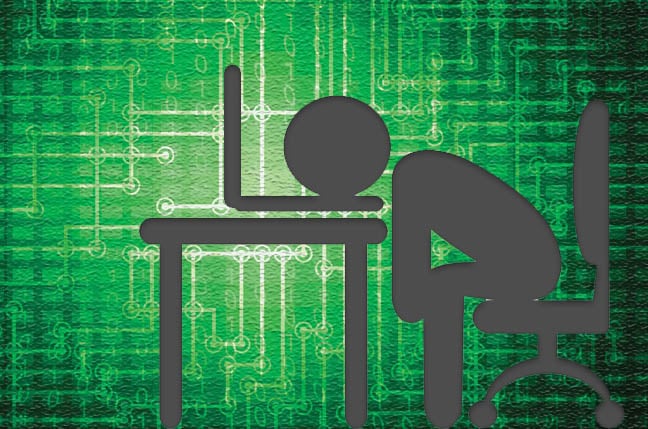UKIP blackmail, data breach sueball allegations were groundless, rules High Court

A lawsuit alleging that ex-UKIP leader Richard Braine took part in blackmail and data breaches has been all but thrown out of the High Court as a judge said it was “without any proper and sound evidential foundation”.
The case was brought after a collapse in internal party discipline late last year led to a comical merry-go-round of suspensions and unsuspensions, as we reported at the time.
Amid rival political factions struggling for control of the right-wing party – which launched Nigel Farage’s political career before the televisually omnipresent Brexiteer split off to form his own movement – Braine was accused of illicitly accessing party figures’ email accounts and the party membership database.
Email blackmail brouhaha tears UKIP apart as High Court refuses computer seizure attempt
High Court judge Mr Justice Saini dismissed almost all of UKIP’s claims earlier this month because they did not have “a realistic prospect of success”, also ruling that the party had “failed to establish even the bare bones of an evidential inferential case” that Braine was behind a claimed blackmail attempt.
United Kingdom Independence Party Ltd accused Braine, former deputy leader Tony Sharp and others of accessing 143 @ukip-dot-org email addresses after an IT consultant previously named as Mark Dent, acting on Braine’s orders, took direct control of party IT systems. The party said Braine and Sharp were the driving minds behind unlawful access to the party membership database and email systems.
Party factions loyal to one-time leader Gerard Batten had been, so they believed, unfairly blocked from standing in the 2019 party leadership election by its National Executive Committee (NEC). After the NEC suspended various party figures, Braine suspended the NEC and ordered Dent to enter party HQ and take control of Office 365 email accounts and the party’s Mailchimp system.
Amid these shenanigans an email was allegedly sent to ex-Conservative MP and current UKIP figure Neil Hamilton, among others. It read:
Mr Justice Saini, sitting in the Queen’s Bench Division of the High Court, described this email as a blackmail threat before ruling there was no evidence to support UKIP’s claims that Braine was behind it. He also noted that nobody was able to produce the original email complete with headers; the court was only shown a “cut and paste version”, causing the judge to conclude UKIP’s blackmail claim was “fanciful” at best.
As for the database claim, UKIP relied on Braine having been suspended as party leader to claim that he had broken the law when he instructed Dent to access Office 365 and give him access to Mailchimp. This also failed, with the judge ruling that as party leader Braine had the right to access the membership database whenever he chose.
One claim was to be transferred to the county court for a more junior judge to decide: that Braine breached his legal duties as a director of UKIP Ltd.
The full judgment may be of interest to those curious to know what the state of civil law is when a dispute exists about access to a personal data repository. It can be found on the BAILII judgment repository.
UKIP won 0.1 per cent of the popular vote in the 2019 general election. The party’s policies were largely targeted at far-right YouTubers, people who treated 4chan as an institution of serious political thought and those who believe Islam is an organised plot to destroy Western civilisation. ®
READ MORE HERE
